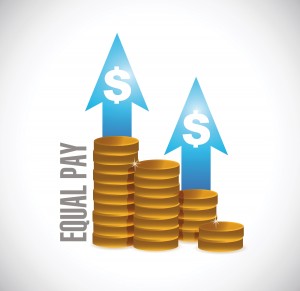Louisiana ranks No. 1 for wage inequality
16th April 2018 · 0 Comments
By Charmaine Jackson
Contributing Writer
Women who work full-time, year-round jobs in the U.S. earn $10,086 less than men, according to a new study released on April 9 for Equal Pay Day.
The study, released by Washington D.C.-based nonprofit organization National Partnership for Women and Families, is a state-by-state analysis of the gender-based wage gap.
Using data from the U.S. Census Bureau, the study revealed that women are paid less than men, in every single state and in the District of Columbia. The study examined the wage disparity by state, race/ethnicity, industry, occupation, parental role and congressional districts.
While nationally, a woman is only paid 80 cents for every dollar paid to a man, the numbers are even more stark for Louisiana, which ranks the highest for cents-on-the-dollar wage gap in the nation. According to the study, women in Louisiana are paid 70 cents for every dollar paid to men – an existing gap of 30 cents and yearly pay difference of $15,238.
Overall, women in Louisiana lose a combined total of more than $15 billion every year, due to the gender wage gap. Utah ranks second, then West Virginia and Montana. The smallest gaps are in New York, California and Florida, respectively.
If the gender wage ceased to exist, a woman’s purchasing power would significantly increase, the study suggests.
On average, a woman working full time in Louisiana would be able to afford 119 more weeks of food for her family, more than one year of mortgage and utilities payments, 1.6 additional years of tuition and fees for a four-year public university, the full cost of tuition and fees for a two-year community college, nearly 19 more months of rent or nearly 33 more months of child care each year.
The stark differences in wages is detrimental and evident among Black women and their families and has contributed to the overall issue of poverty and income inequality.
Nationally, the study found, that Black women are paid 63 cents for every dollar paid to white non-Hispanic men, while white non-Hispanic women are paid 79 cents, and Latina women are paid just 54 cents. Also, more than 80 percent of Black mothers are key breadwinners for their families, so their income alone is paramount for survival, but based on the data, is insufficient.
More than four million family households in the United States are headed by Black women – and nearly one in three of those households lives below the poverty level, which means that more than 1.3 million family households headed by Black women live in poverty. This data highlights one of many reasons the wage gap must be closed, according to National Partnership.
“The wage gap cannot be explained by women’s choices. It’s clear that discrimination contributes to it – and equally clear that it’s causing grave harm to women, families and the country. Lawmakers have not done nearly enough to end wage discrimination based on gender and race, to end sexual harassment, which impedes women’s job advancement; to stop discrimination against pregnant women; to advance paid family and medical leave and paid sick days and to increase access to high-quality, affordable reproductive health care. If our country is to thrive, we must root out bias in wages, reject outdated stereotypes and stop penalizing women for having children and caring for their families,” said Debra L. Ness, president of the National Partnership.
The study shows that regardless of the education level, industry or occupation, women’s wages were disproportionate to men’s wages and discrimination and bias were influential factors.
“The gender-based gap results in staggering losses that make it harder for women, in Louisiana and across the country, to pay for good and shelter, child care, college tuition, birth control and other healthcare. We urgently need public policies that improve women’s access to decent paying jobs, provide the supports women need to stay in the workforce and advance in their jobs, and ensue fair and nondiscriminatory treatment wherever women work and whatever jobs they hold,” said Vicki Shabo, National Partnership’s Vice President for Workplace Policies and Strategies.
Ness proposes that state lawmakers help address the wage gap by passing laws that prohibit employers from asking about salary history and protect employees from retaliation if they discuss pay, and said that companies in the private sector can help level the playing field by increasing pay transparency, limiting the use of salary history and using standardized pay ranges in hiring and promotions.
In an effort to close the wage gap, National Partnership is urging Congress to pass several bills that would ensure greater protections for women in the workplace, including:
• the Paycheck Fairness Act to address patterns of pay discrimination and establish stronger workplace protections;
• the Fair Pay Act, which would diminish wage disparities resulting from gender-based occupational segregation;
• the Healthy Families Act, guaranteeing workers the right to earn paid sick days;
• the Family And Medical Insurance Leave (FAMILY) Act, creating a comprehensive paid family and medical leave program;
• the Pregnant Workers Fairness Act, which would update and strengthen protections against discrimination against pregnant workers; and
• the Equal Access to Abortion Coverage in Health Insurance (EACH Woman) Act, which would restore abortion coverage to women who receive health care or insurance through the federal government and prohibit political interference with health insurance companies that offer coverage for abortion care.
National Partnership is also calling for other measures aimed at increasing the minimum wage, eliminating the tipped minimum wage and strengthening protections against workplace sexual harassment.
For more information about the gender-based wage gap study conducted by the National Partnership for Women and Families, visit www.nationalpartnership.org/gap.
This article originally published in the April 16, 2018 print edition of The Louisiana Weekly newspaper.



